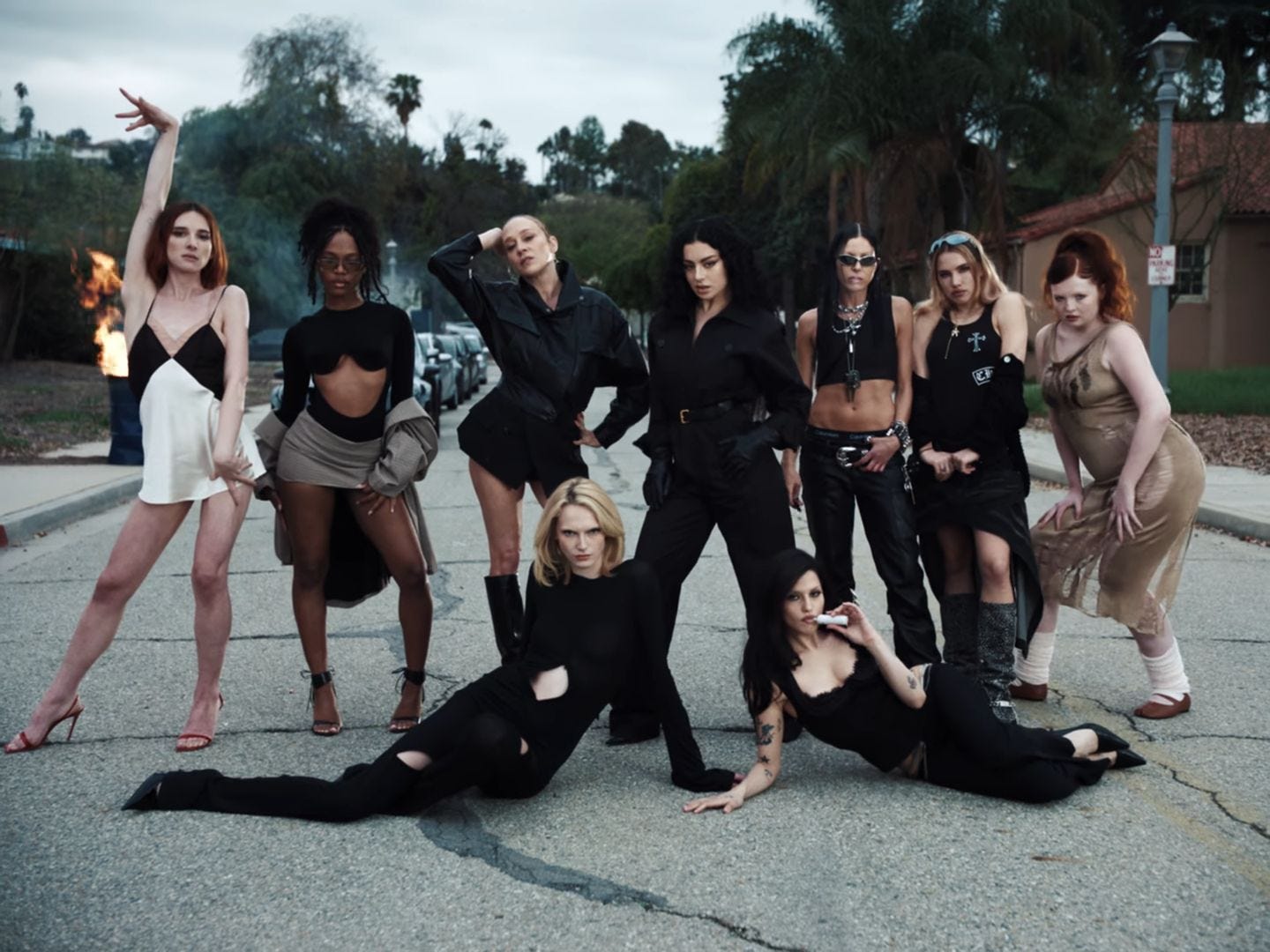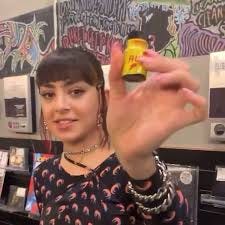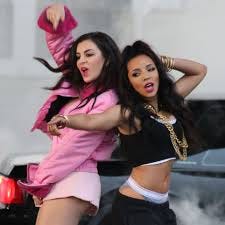Welcome to We Have to Talk, a fortnightly newsletter in which Sam and George exchange their most pressing and ridiculous reflections on pop culture. Subscribe to get a hot mess of tepid takes directly into your inbox, twice a month.
This week, it’s all aboard the bratmobile as Sam and George ponder whether theirs will be a #NastyGirl summer.
G: Hey Sam. As London gays in their late 20s, we are legally contracted to make this edition about brat, Charli XCX’s new album. It’s brilliantly chaotic, both expanding and reflecting on the lore of Charli’s artistry and iconography in the way that some of the most blockbuster pop albums of the last decade have done for their respective artists - Norman F****** Rockwell and Lemonade come to mind. It’s something Charli herself has said she requires from artists: you must create a mythology, because good songs are not enough. (The numerous singles from indistinguishable female Scandinavian singers I have on rotation would beg to differ.)
The bangers on brat are bulletproof, but it’s the mythology I want to explore. Almost every song is self-referential, with Charli reflecting on whether she’s famous enough, how she compares to other artists and why she’s even doing this in the first place. (It’s because she loves doing lines!) This is something that usually grates me about artists who reach a certain level of fame: MIA was the first artist I ever followed obsessively, and over time her lyrics went from being political (rapping about the Palestine Liberation Organisation or the marginalisation of London’s working classes) to narrowly self-absorbed. On her later albums, genuinely political lyrics were entirely absent, replaced with lines like “Lara Croft is soft when it comes to my stuff/she’s made up, I’m real”.
But on brat, I think Charli breaks past navel-gazing and has made a compelling record that uniquely reflects on jealousy, obsession, narcissism, ageing and the nuances of relationships between women by exploring these through the prism of her own fame. It’s startlingly honest, exploring the headfuck that is being a female artist who’s trying to innovate while simultaneously play the game (i.e, making a ‘main pop’ album, calling the paparazzi on herself). None of this is relatable, but that’s not what we’re here for. If anything, I feel like it invites her fans inside, to the point where listening feels like playing the game with her, memorialising her artistry even as she tells us that underneath it all, she’s brutally insecure.
I don’t know if any other current artists are exploring their own lore so honestly, and it’s fascinating to listen to. Pop the culture iconography, indeed. Anyway, back, to back, to back, to back to you, Sam - what do you think?
S: Now why bring up the nonsensical stain of “pop the culture iconography”? A great example of an artist letting their project come off the boil with an ill considered clunker, something Charli’s laser-focused curation would never permit. I think brat is kind of fascinating as a rebuke to the idea knocking around these last few years that the album as a format is dead in the age of streaming. Between the singular cover art, strong single choices, deeply personal lyrics and the possible Dasha Nekrasova controversies (coincidentally also in The Beast, which I touch on below), it’s a pristinely-engineered package that adds up to be more than the sum of its parts, as all good-to-great albums should.
I think Charli innately understands that being a “star” is about embodying and reconciling contradictions; she’s always pulling up to the club but totally unreachable, she’s a pop star and a raver, a valley girl and yet also from Surrey. And now, both full of need and brash bravado, she’s a total brat. But as some who has been in the Charli trenches for almost 15 years, this feels more like her anointment in the mainstream consciousness as an “artist”. Which is funny since it feels quite referential of early 00s electroclash and lofi MySpace demos, rather than sonically shifting the culture with something brand new as she did at the peak of her PC Music buffed-and-sheened hyperpop period.
There’s a real feeling of “iykyk” surrounding the brat roll-out, which is kind of bizarre now that everyone and their mother seems to know. Just to hear ‘Superlove’ live, teenage Sam trekked to the now-canceled Brecon Beacons Festival where his tent’s inner was stolen in the dead of night and he had to beg strangers for beer money. And reader, she didn’t show up. So please forgive me if I want to lament not being a gatekeeper anymore as the late-to-the-party poppers-for-personality teens spend their week trailing the bratmobile round London’s 1000 capacity club venues. (If you are one of our esteemed readers and are concerned this barb may be aimed at you please rest assured it is NOT (!!) - ed.).
In terms of dealing with “lore,” Charli certainly has a lighter touch than someone like Taylor Swift, whose recent output mostly leaves me wondering “girl, what on earth are you talking about?” given my lack of enthusiasm for dividing every number I encounter by 13 or having an encyclopaedic knowledge of what jewellery she was papped wearing in 2019. But I’m not sure if – outside of ‘Girl, so Confusing’ – Charli is really dealing with “lore” on brat more than the gap between being both human and icon, and between confidence and candour. There’s moments of brat that recalled the match between Gwen Stefan’s anarchic pop instincts and soul-bearing confessions on Return of Saturn, another album about navigating insecurities and figuring out whether to keep the party going or pack it all for a Simple Kind of Life. And incidentally, the leaked tracks Charli wrote for Gwen are worth checking out, if slightly overthought about Gwen’s “popstar” essence.
G: On contradictions, and the spaces between, it’s interesting to me that Charli is exploring these as one of our most online pop stars. Even in the way she interacts with people online, there’s multitudes: tweeting with confidence and power one day, having her day ruined by a 15-year-old with no job and strong opinions on another. Maybe this is what she was playing with in the 360 video - the performance and ephemerality of being an internet it-girl. I also think it matches brat’s hyperpop production perfectly: being online feels as frenetic as brat sounds, but the album is also an obliteration of how binary the online world wants us to be. Social media thrives on making us view the world two-dimensionally and treat people as ones and zeros, but on brat, Charli reminds us that people might wake up feeling one way and go to sleep feeling another. They might want to have a baby on track 14 and a bump of coke on track 15.
However, and I know this may sound blasphemous, I have found myself wanting some sonic variation after a few spins of brat. I love the sound of pots and pans as much as the next gay with hearing loss, but I think it speaks volumes that my favourite Charli song is the more tuneful ‘Constant Repeat’. I can’t help but compare Charli with Tinashe, our cultural north star, who also happens to be having a long-overdue moment in the sun. Tinashe also loves to explore life’s messy contradictions, singing as much about partying and sex as she does about loneliness and vulnerability, but she does so across numerous genres, able to imbue pop, RnB, hip hop, garage and more with her trademark blissful touch. And that’s probably why I hold her songs closer, and find them more transporting than Charli’s: even when singing about anxieties and insecurities, Tinashe sounds offline.
The comparison should end there, though: having a summer in which both Tinashe and Charli XCX climb the charts fifteen years after they should have is absolute catnip for us, and worth celebrating. There is something slightly hilarious about Tinashe managing it finally with ‘Nasty,’ a song that sounds like a b-side, after releasing three back-to-back masterpieces in five years to little industry attention. But maybe that is the lesson: all it takes to go viral in the TikTok age is to basically ask for it, though hearing that viral ‘Man in Finance’ song at the gym the other day made me want to swing my kettlebell right through the wall.
A final, humbling note: Even though Tinashe’s discography is triple platinum in my house, ‘Nasty’ is her first solo entry into the Billboard Hot 100. That had me curious as to what the top ten currently looks like, and lo and behold, only one woman currently sits there: Sabrina Carpenter with ‘Espresso’. The rest are men, including a made-up person named “Benson Boone”. As the ancient proverb goes, Charli and Tinashe are for the arts, not the charts.
S: Amongst its litany of crimes against taste in that Top 10, perhaps the most egregious is waxen escapee of Madame Tussaud’s, Eminem, at number two with ‘Houdini.’ This is a song entirely unfit to share a name with Dua’s same-titled slapper which stalled out at number 11 on the Hot 100 last year.
But it is thrilling to see both Charli and Tinashe defining the summer, and vehemently disagree that ‘Nasty’ sounds like a b-side; those angelic prechorus vocals dropping off into a spare, menacing beat is pure genius to these ears. Plus “is somebody gonna match my freak” has already become a seminal, era-defining, vocabulary-shifting, consciousness-raising rallying cry for the single and unsatisfied. As you point out, the core difference between these seminal artists is that Charli’s finds peace in the chaos, while Tinashe generally quietens the noise. She’s like the Goop of trap bops! And with that I’m off to the beach to cultivate a sunshine state of mind. Until next time, George!
From the Drafts:
Speaking of arts not charts: not many will remember Tinashe and Charli XCX’s 2015 collaboration Drop That Kitty, but cultural critic and essayist Jia Tolentino probably does. She called it “the best song I’ve ever heard” in Jezebel at the time. (G)
If you are new to the Tinashe Party, welcome! The journey ahead is bright and full of wonders. I like her more dreamy, ambient work, so would recommend starting with ‘Gravity,’ ‘Let Go’ and ‘He Don’t Want It’. Sam, drop your top 3. (G) I recently made a Tinashe Top 30 playlist, so picking just three would be impossible. Instead I would encourage our readers to check out her albums Songs for You and Nightride. The former is a full throttle statement of creative intent and showcase for her artistic range, while the latter finds her really bedding into the slinky Janet-meets-Sade sound she does so well. (S)
Obsessed with the girl I spoke to at a party recently who didn’t like Joachim Trier’s The Worst Person in the World because “she wasn’t even that bad”. (G)
Watch to the end of this Dua Lipa performance to witness her turn into Cate Blanchett as Scary Galadriel in The Lord of the Rings: The Fellowship of the Ring. (G) She looks lovely, George. (S)
The Week that Was:
George is watching: The Last of Us, which for some reason passed me by last year. I love end-times fiction so I’m obviously obsessed. I greatly admire these characters’ determination to withstand the apocalypse when my email job alone gives me back pain.
Sam is reading: Antonio Tabucchi’s ‘Pereira Maintains,’ which recounts the fictional testimony of a widowed journalist living in Portugal during its descent into fascism. It has a wonderful sense of impending calamity, with a delightfully proud protagonist whose obsession with his diet and declining health makes for an uneasy distraction from the creeping rot of the body politic.
George is listening to: The excellent new James Blake song, ‘Thrown Around,’ which sounds like a Groove Armada hit from the 90s. Bring back trip-hop! (Not you, Dua Lipa.)
Sam went and saw: A second viewing of Bertrand Bonello’s The Beast. Playful, horrifying and elusive, I’m convinced it is a visionary work and amongst the most clear-sighted statements about society’s turn inward being a retreat from the unknowable. An uncanny assemblage of symbols forming endless dialectics of irreconcilable meaning; loneliness and desire, intuition and automation, anxiety and longing. Plus the leads are spicy. Run don’t walk!







